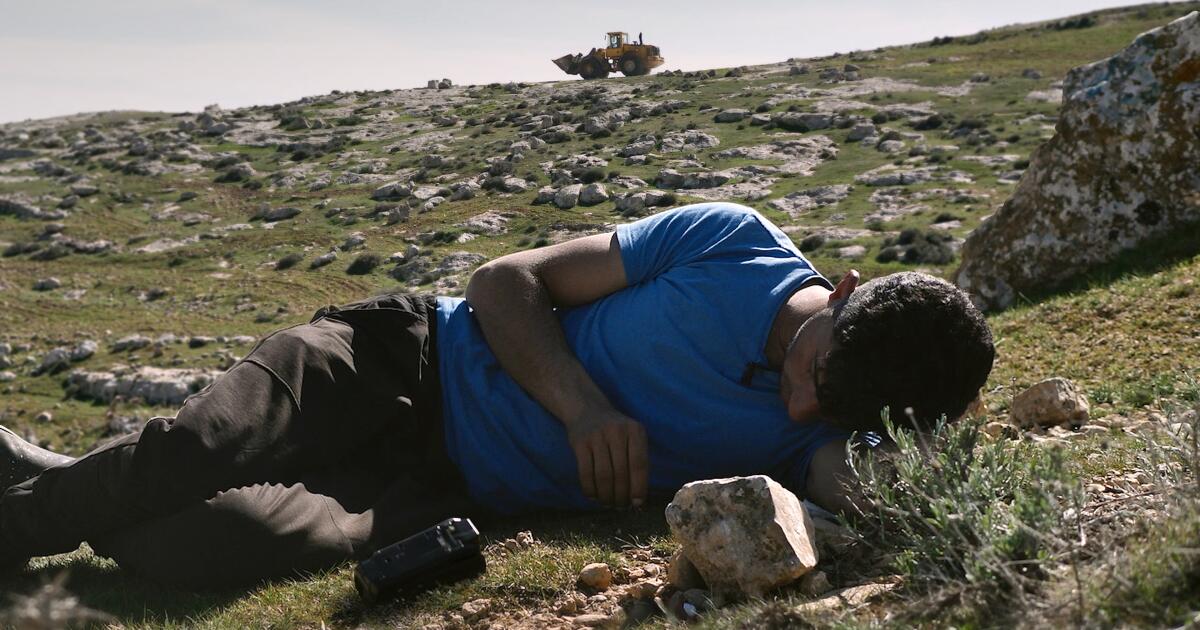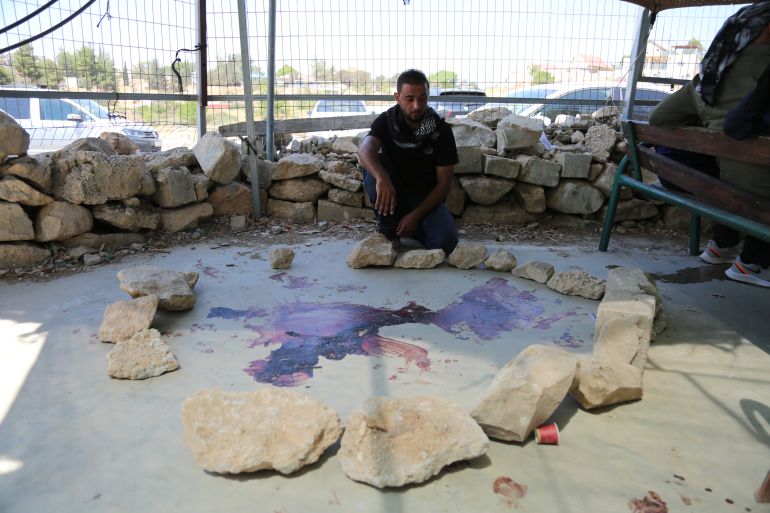‘No Other Land’ collaborator killed by Israeli settler
Awdah Hathaleen a Palestinian community leader who was a consultant on the Oscar-winning documentary “No Other Land,” died Monday after an Israeli settler allegedly shot him to death in the occupied West Bank.
“No Other Land” filmmaker and subject Yuval Abraham announced his colleague’s death Monday, writing on X (formerly Twitter), “[Hathaleen] just died. Murdered.” Two hours prior, Abraham shared video of the confrontation that led to Hathaleen’s death. In the video, the settler in a dark shirt can be seen shoving people in a group, pulling out and pointing his pistol in their direction. The video shows him firing at people off-screen.
In the caption of his video, Abraham writes that the settler “just shot” Hathaleen in the lungs and identified the shooter as Yinon Levi. Levi was among the 13 hard-line Israeli settlers targeted last year by international sanctions for their alleged attacks and harassment of Palestinians in the West Bank. President Trump lifted U.S. sanctions against the Israelis in January.
“This is him in the video firing like crazy,” Abraham tweeted.
The incident occurred in in the village of Umm al-Khair, in the Masafer Yatta region that was the focus of “No Other Land.” Hathaleen was rushed to a hospital in Israel, where he was pronounced dead, his family confirmed to the New York Times. He was 31.
According to multiple reports, Israeli police said they responded to the scene, detaining and arresting an Israeli citizen. Police did not identify the detainee they took in for questioning, and claimed “terrorists hurled rocks toward” the nearby Israeli settlement of Carmel, according to CNN. Additionally, the Israeli military detained five Palestinians and two foreign tourists for their alleged involvement in Monday’s incident, the BBC reported.
The IDF did not immediately respond to The Times’ request for confirmation on Tuesday.
“No Other Land” filmmaker and Palestinian journalist Basel Adra on Tuesday tweeted video showing the attack from another angle. In this video, Levi is seen with the pistol in his right hand, smacking a person in front of him. The clip also sees Levi raising his right arm and firing off-screen. Adra says Levi “fires the bullet that took” Hathaleen’s life, adding in his caption that “the apartheid court decided to release him to house arrest.”
On Monday, Adra tweeted he was in disbelief about his friend’s death: “My dear friend Adwah was slaughtered this evening. He was standing in front of the community center in his village where a settler fired a bullet that pierced his chest and took his life. This is how Israel erases us — one life at a time.”
On Instagram, the Center for Jewish Nonviolence described Hathaleen as a well-known community figure: “an activist, artist, and teacher in the West Bank community of Masafer Yatta.” The activist group reminded Instagram followers that last month Hathaleen and another Palestinian man were denied entry, detained overnight and deported back to the West Bank when they arrived at the San Francisco International Airport.
“So many in our community knew Awdah, and gained so much by learning from him, and being his friend,” the organization said, concluding its statement with a call to action. “May Awdah’s memory be a revolution. May we see justice for Awdah, and justice for all Palestinians, within our lifetime.”
Earlier this year, Israeli settlers brutalized another member of the Oscar-winning “No Other Land” team. In March, Palestinian filmmaker Hamdan Ballal was beat in his head and stomach by settlers in the village of Susiya in the Masafer Yatta area. Palestinian residents said the settlers, some wearing masks, some carrying guns and some wearing military uniforms, attacked as residents were breaking their fast during the Muslim holy month of Ramadan, according to the Associated Press. Israeli military and police forces detained the filmmaker on suspicion of hurling rocks at IDF and police.
He was released a day later, with bruises on his face and blood on his clothes. As he recalled hearing “the voice of soldiers laughing at me,” his wife said she felt the international attention surrounding “No Other Land’s” Oscar win prompted settlers to “attack us more.” The harrowing documentary , which became the subject of controversy in Miami Beach earlier this year, documents Israel’s demolition of Palestinian villages in Masafer Yatta and the displacement of their communities in favor of Israeli military training grounds.
Since Israel launched its war against Hamas nearly two years ago, more than 60,000 Palestinians have been killed, Gaza’s Health Ministry said Tuesday. At least 77 were killed over the past 24 hours, most while seeking food.
The Associated Press contributed to this report.




